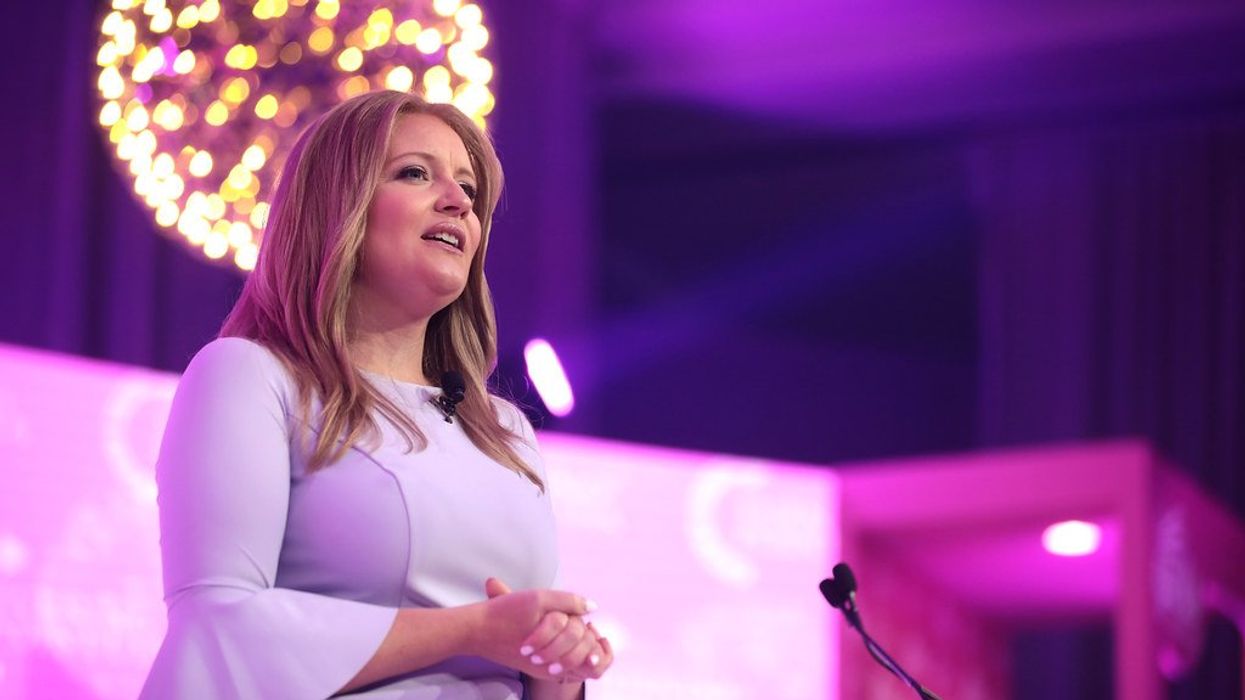Here’s what 'accelerated' this potential star witness’ Georgia plea deal: report


Just days after former President Donald Trump attorney Jenna Ellis — who was all indicted by a Fulton County grand jury alongside Trump on criminal charges related to efforts to overturn the 2020 election — took a plea deal, The Guardian reports why taking the deal happened so suddenly.
Per the report, Ellis took the plea deal — following co-defendant Scott Hall and ex-Trump lawyers Sidney Powell and Kenneth Chesebro's footsteps — after pleading "guilty to one felony count of aiding and abetting false statements and writings last week."
In an exclusive interview with The Atlanta Journal-Constitution (AJC) Wednesday, Ellis' lawyer Frank Hogue said, "I think what really accelerated it was Powell and Chesebro falling as they did, one right after the other. It looked like timing was of the essence for us."
POLL: Should Trump be allowed to hold office again?
Noting "Ellis could be a star witness against Trump and the former New York mayor Rudy Giuliani," The Guardian notes when Hogue was "asked if Giuliani should be worried," he replied, "I think he should be. I think there's enough for Mayor Giuliani to worry about that wouldn't have anything to do with Jenna Ellis. She wouldn’t be a help to him, I don't think, if she was to be called as a witness. But I think his troubles extend far beyond her."
The Guardian reports "Negotiations took place over a three-day period, Hogue said, although he did not say if they were initiated by the prosecution or defense."
He also said Fulton County District Attorney Fani Willis "originally" pitched "a deal in which Ellis would plead guilty to an offense under the Racketeer Influenced and Corrupt Organizations Act (Rico) often used in mob prosecutions," according to the Guardian.
Hogue said, "That was about a three-second conversation. Long enough to say, 'No, we're not doing Rico."
READ MORE: 'Not a positive development': Why Jenna Ellis’ plea deal is bad news for Trump
But the deal Ellis did take was "a good idea," Hogue said, "because it ensured she was able to keep her license to practice law or maintain a pathway to earning it back if it was surrendered," the report notes.
"To get out of it with five years’ probation, terminate in three, which I’m sure it will for her, and the restitution and the other conditions of probation, none of it’s onerous for her," Hogue said. "She's already back in Florida and resuming her life and doesn’t have to face any of this any more. So for her, my feeling is it's a good result."
The Guardian's full report is available at this link.